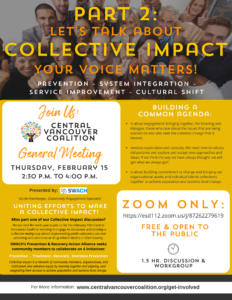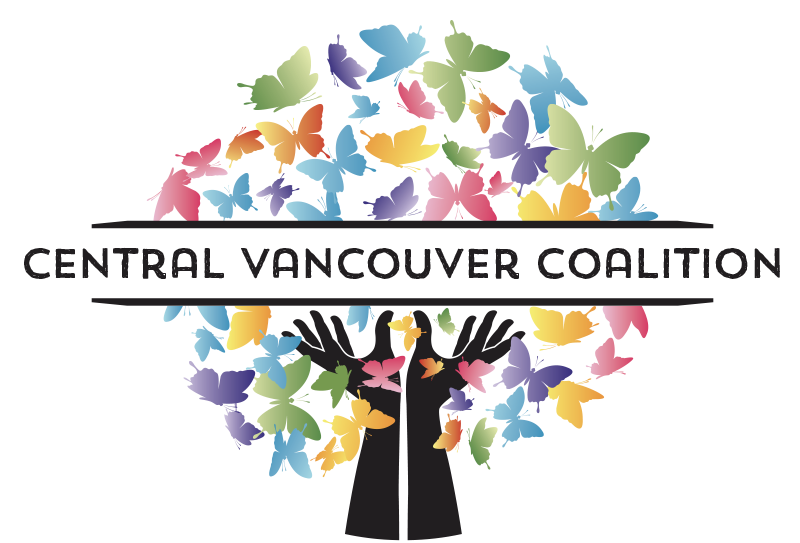Central Vancouver Coalition February General Meeting – virtual only

HI CVC Members & Partners,
The general coalition meeting scheduled for tomorrow—Thursday, February 15th from 2:30-4:00p — will be VIRTUAL ONLY. You may join us on Zoom using this meeting link https://esd112.zoom.us/j/87262279619. Our coalition meetings are open to the community, and we encourage inviting others to join us for our meetings.
If you shared the original flyer to invite community members to join the meeting, please share the updated flyer and let them know the meeting changed to Zoom ONLY. The meeting agenda is also included below. We look forward to another productive and collective workgroup!
2/15 Virtual Only Meeting Flyer
MISS PART ONE OF OUR COLLECTIVE IMPACT DISCUSSION?
No worries! Join us for the February 15th Central Vancouver Coalition meeting for part two of our Collective Impact efforts. Your voice and experiences are essential, and we invite you to engage in discussion and develop a collective workgroup aimed at preventing youth substance use and achieving zero overdoses or drug-related deaths in Clark County. Nicole Hamberger, Community Engagement Specialist with SWACH and coordinator for Prevention Recovery Alliance Clark County (PRACC), will lead us in the discussion.
Meetings are held monthly on the 3rd Thursday from 2:30 pm – 4:00 pm
The Central Vancouver Coalition aims to increase community organization in Central Vancouver through monthly community meetings, training, and collaboration with other local organizations. These meetings are held from 2:30-4:00 p.m. on the 3rd Thursday of the month with the exception of December and July. The meetings are a hybrid format with the choice to attend the meeting in person at Fort Vancouver High School or virtually via Zoom. Meetings are open to all community members and formal membership is not required to attend. If you are interested in attending a meeting and learning more, please contact the coalition coordinator to RSVP. We are seeking coalition member representatives from the following sectors: Youth, Parents, Law enforcement, Schools, Businesses, Media, Youth-serving organizations, Religious and fraternal organizations, Civic and volunteer groups, Healthcare professionals, State, local, and tribal agencies with expertise in substance abuse, Other organizations involved in reducing substance abuse.
